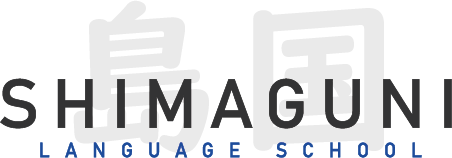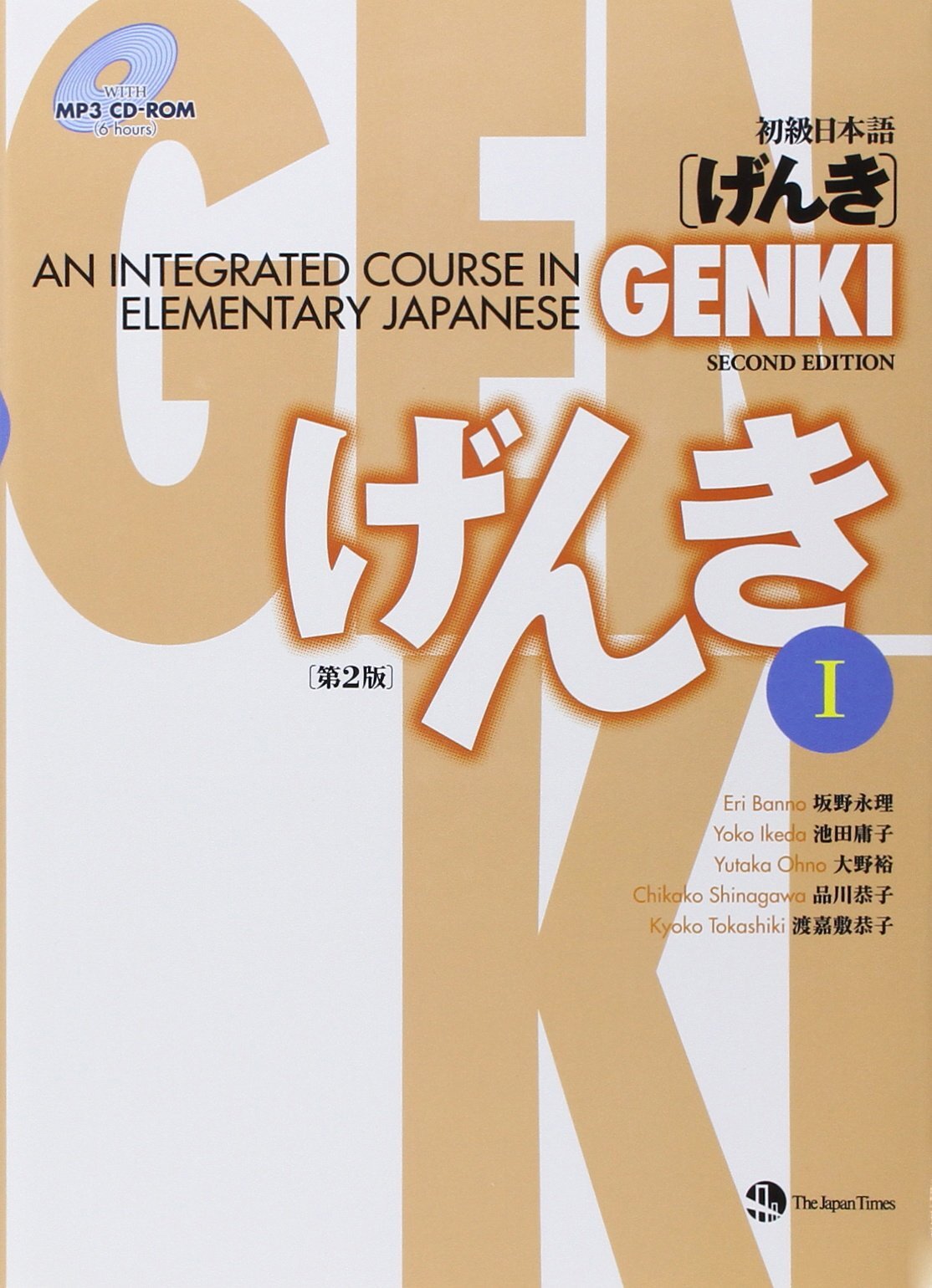Genki: The Best Textbook?
We recommend the Genki textbook to our students at Shimaguni. Here, I will explain why I think it is a great resource for serious beginners.
I will also explain how and when we use Genki for our private and group lessons at Shimaguni.
What are the Genki books?
The Genki books form a course in Elementary Japanese. The 2 main textbooks are comprehensive. The 23 chapters in textbooks take you from being an Absolute Beginner, to being able to understand and produce complex expressions and vocabulary.
The textbooks are made for classroom study, but many exercises can be done independently at home. The detailed grammar explanations provide a wordy but excellent resource. A separate workbook can also be purchased for home study.
With the books, you can practice listening, reading, writing and speaking skills as well as learning a huge amount of important beginner vocabulary. Please note the audio files need to be played on a computer or an MP3 player, not a CD player (there are also online sites for listening to the audio).
What do the books cover?
The bulky textbooks cover a lot of material, although the layout can be a little confusing at first. Basically, the dialogues and exercises in the main part of the book are for working on speaking and listening skills. The lessons at the back are for studying reading and writing.
In the Genki 1 book for example, you can learn 130 Chinese Characters as well as the hiragana and katakana scripts. Along with the grammar introduced in the 12 chapters of the book, this would take students roughly to a level ready to take the N5 exam of the JLPT (Japanese Language Proficiency Test).
While the content of Genki is primarily aimed at use in University courses, it is also useful for adults learning “at a school or on their own”. The Genki textbooks have been around since 1999, and they are now in their 3rd edition.
Genki is the closest to a bible of Japanese study. It gets picked apart mainly because it is so popular. This popularity can benefit the learner. If you have a question from Genki, you can almost guarantee someone online has asked the same question before.
Compared to other textbooks, Genki is expensive, especially if you buy the workbook as well. The advantage of Genki over other textbooks is its size; you can learn more, and learn it more efficiently following a proven format.
The vocabulary of Genki
The vocabulary is the heart of any textbook. Genki systematically introduces a lot of language you can rely on. Basically if it is in the book, it is common in conversation. This is really important for the learner.
Common means important – worth learning. If a word is not common, you are much more likely to forget it because you won’t come across it so often.
When I began learning Japanese, I spent far too long learning low frequency words, words only ever used in a specific context. I kept trying to learn advanced vocabulary before I knew the beginner alternative. I was trying to make cranberry sauce before I could boil a potato.
If I had started my Japanese study with a book like Genki, I would have saved myself a lot of time and trouble.
The style of Genki
A common criticism of Genki is the dialogues in Genki do not sound very natural. Some of the expressions do sound a little stiff and unlike how natives speak. I do not necessarily think this is a bad thing though.
Natives acquire language as a child over years of exposure, not by a few months looking at a textbook. The acquisition of a language as a child cannot be imitated in a textbook.
Even if it could, I am not convinced it is always desirable to sound exactly like a native when still a beginner.
The textbook is a tool to help students understand how native speech works, and to learn how to clearly communicate with native speakers. The book teachers common vocabulary and grammar patterns, not high level, native speech.
But, what if you really do want to sound like a native?
Well firstly, you have to consider what kind of native do you want to sound like? In Japan, what language you use can vary enormously depending on your age, your background and your profession.
The difference between formal and informal speech in Japan is much bigger than in English. Understanding both formal and informal speech is crucial for getting by in Japan.
Of course, as an earnest beginner you will always be forgiven for using formal or informal language inappropriately at times. That is one reason why being seen as a beginner rather than as a native can be a major advantage.
Fortunately, the Genki textbook does cover different social situations, from the ultra-polite keigo form of speech to informal chatter with friends. Using the book for focused study of these forms can help you begin to understand native interactions.
Genki at Shimaguni
Our private classes use Genki if the student has purchased a copy and wishes to use it for study in lessons. In consultation with the student, we can also provide alternative study material for use in class instead.
We do not require our students to buy the Genki book for group lessons. We produce our own material for group classes that does not refer directly to the textbook. Our material does introduce the same grammar points as the Genki textbook, so a copy of Genki can be a very useful reference for pre and post class study.
Please feel free to leave any comments below. You can also email me (Tom) with any questions at info@shimaguni.co.uk


